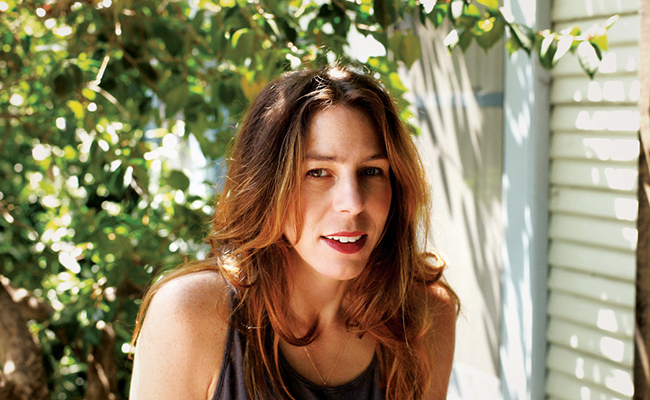
What’s the secret to becoming a great writer? According to Rachel Kushner, a two-time finalist for the National Book Award, one of the most critical, yet commonly overlooked aspects of the writing process begins even before putting pen to paper—it starts with becoming a keen observer. As Scripps’ Mary Routt Writing Chair, Kushner is teaching a course titled Looking and Listening, which will invite students to take a closer look at the spaces around them.
“I believe that seeing carefully, and with full attention, with complete patience, is critical to being a good writer,” she explains. “Most writing seminars focus on craft. Or on voice. Seldom are the activities of looking and listening formalized as a kind of pedagogical training for artists and writers.”
Scripps established the Mary Routt Chair of Writing to bring a nationally recognized writer to campus to teach, lecture on their work, and participate in campus life during the spring semester. The chair was made possible through a donation from Mary Patterson Routt, who served on Scripps’ Board of Trustees from the time the College was established, from 1926 to 1965. Routt was herself a trailblazer for women writers—she was one of the first female journalists of the White House Press Corps. A search committee composed of five faculty members from different departments across campus does the work of selecting the Mary Routt Chair each year; past chairs have included Sandra Tsing Loh, David Treuer, and William Deresiewicz. According to Professor Kimberly Drake, chair of Scripps’ Writing Department, the committee selected Kushner because “her body of work is compelling, critically acclaimed, and innovative, and because her stature as a writer looms large.” Kushner’s two published novels, Telex from Cuba (2008) and The Flamethrowers (2013), were met with high praise, earning her nominations for the National Book Award and placing her on New York Times bestseller lists. The committee praised Kushner’s novels for “challeng[ing] expected aspects of representation and narrative” and “touch[ing] on significant issues in our current moment.”
Although she is relatively new to teaching, Kushner is looking forward to applying herself to the vocation, which she says “is not something I normally do, and yet, a skill I value quite highly in others.” The inspiration for her course comes from the work of the American philosopher, naturalist, writer, and political activist Henry David Thoreau. For Kushner, approaching the world with an observant eye is necessary not only for writing, but for the act of going about one’s daily life. “The poets of the world need to see clearly. We will together, as a group of individuals, talk about how to hone this elemental skill, beneficial not just to making art, but being alive.”
Throughout the semester, Kushner and her students will collectively determine local destinations to visit and observe. Even seemingly mundane places have the potential to offer truths or insights, she believes. Although these locations will be decided as a group, Kushner plans to suggest “local destinations that feature elements of the community where the students live and go to school, like the Pomona Car Show, or a golf course, or a water treatment facility.”
In addition to writing about their experiences and observations, her students will grapple with works by Joan Didion, Jamaica Kincaid, Don DeLillo, Denis Johnson, and Marcel Proust—writers who Kushner believes take in their surroundings with intention. Ultimately, for Kushner, the most impactful stories are the ones that elucidate something undeniably accurate about the human experience. “If a story can capture something absolutely true—and also mysterious, and amusing—about life, perhaps that can make it memorable,” she argues.
Kushner is looking forward to hearing the varying perspectives that her students bring to the table. “[I’m excited] to meet my students and find out what they are thinking about and care about,” she says. In addition to teaching, Kushner will be participating in two programs as part of the Scripps Presents spring season. On March 7, she will welcome novelists Colm TóibÃn and Ottessa Moshfegh to Scripps for a conversation about the art of writing. “[They] are both wonderful writers at the top of their game, and we are incredibly lucky they are coming,” says Kushner. On April 24, Kushner will read from her highly anticipated new novel, The Mars Room.

